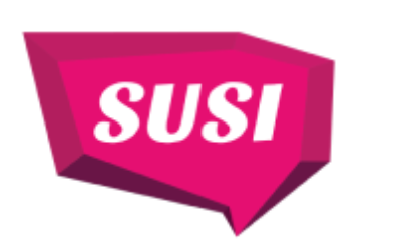Courses
Admissions & Support
Course Search
Courses
Admissions & Support
Course Search
Our Services
Our Community
Course Search
Governance
Professional Services
Location: Online
years: 1
Fees: €2,500 (Tipperary Skillnet 80% funding)
Register Your Interest
Click hereFunding Opportunites
Funding OpportunitiesSemester 1
Leadership and Management Development
Human Resources and Developing People
Operations, Logistics and Supply Chain Management
Semester 2
Financial and Management Accounting
Customer Service and Value
Applied Practice 1: Personal and Professional Context
Stage 1
Module 1: Leadership and Management Development
Module Aim
This module will provide the participant with an understanding of management practice and managerial skills applicable to the workplace through the discussion on the history of management and the evolution of management and leadership theory to the present day. The objective to enable participants to understand the differences between management and leadership including styles and characteristics of successful managers/leaders. For any student that is currently unemployed, they will be facilitated with a live case study.
Learning Outcomes
Module 2: Human Resources and Developing People
Module Aim
This module is concerned with the practice of human resources and employee relations in a managerial context. It discusses human resource management policy and practice concerning recruitment and selection, performance management, careers, training and development, job design and reward. It provides an overview of current developments in employee relations and considers the influence of employers, employees and other stakeholders in shaping the employment relationship.
Learning Outcomes
Module 3: Operations, Logistics and Supply Chain Management
Module Aim
To provide the students with the theoretical background and knowledge which will enable them to analyse Operations, Global Logistics & Supply Chain Management and to understand the elements which require integration in order to ensure the successful management of an Operations, Logistics & Supply Chain organisation.
Learning Outcomes
Module 4: Financial and Management Accounting
Module Aim
The aim of the module is to provide students with an understanding of the financial accounting concepts, which will enable them to produce and interpret financial statements for limited liability companies, and management accounting techniques used for the provision of information to mangers to assist with planning, control and decision-making.
Learning Outcomes
Module 5: Customer Service and Value
Module Aim
This module presents a broad introduction to customer service, the role of customer service in an organisation and the associated concepts, tools and techniques of customer service management. The acquisition, management and retention of customers is a critical business activity and the delivery of consistent and effective customer service and value is key to achieving this business priority. Customer service is required throughout the entirety of the customer’s interaction with a business and is a key priority for all functional areas of the business including logistics and supply chain management.
Learning Outcomes
Module 6: Applied Practice 1: Personal and Professional Context
Module Aim
This module is designed to assist students with preparation for professional and personal work-based development and well-being. There will be a particular emphasis on career, personal development and well-being in the modern workplace.
Learning Outcomes
This programme will be delivered online.
This programme will be delivered 2 evenings per week plus selected Saturdays.
This course will open up a range of opportunities in terms of your future career direction. Combining studies within the core business disciplines, you will be provided with an opportunity to consolidate and apply business skills within a innovative business environment. This will offer you a distinct advantage in securing graduate employment.
You will have the opportunity to study a wide range of business-related subjects in the early years, while still having the benefit of selecting the key subject options that interest you most during the final two years of the course. Furthermore, you will develop your IT skills through the use of a variety of relevant software application packages.
As an honours business graduate, you can expect to obtain employment at the appropriate level across a wide range of business areas, including management, administration, accounting, banking, retail management, finance, marketing, human resource management, insurance, and computing/ information technology. Rapid career progression may be expected on the basis of expertise, commitment and attitude. This programme is assessed by a combination of various forms of continuous assessment conducted throughout the semester and final examinations at the end of each semester.
Successful graduates of this programme are eligible to Progress to the Higher Certificate in Business Year Two.
This course will prepare you for a successful business career. Areas you can specialise in include accounting, banking, insurance, marketing, human resource management, administration, retail services and computing. Our sought-after graduates have gone on to pursue a wide variety of careers in companies ranging from small indigenous Irish companies to large multinational corporations.
2-3 evenings per week 6pm to 9pm (online) Plus selected Saturdays per 9am – 1pm (online).
€2,500 –
This programme is subject to potential funding from Tipperary Skillnet for 80% funding



Join the TUS Flexible Learning Community
Click here